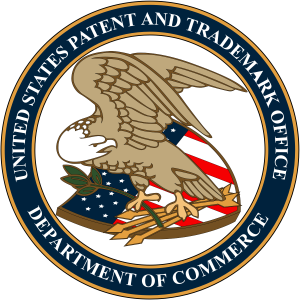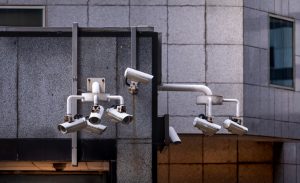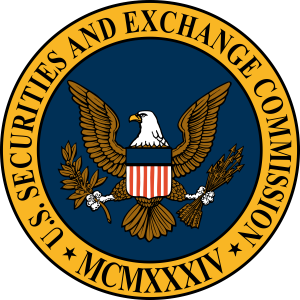As California reopens from the COVID-19 pandemic and workers begin returning to work in-person, many employers have begun requesting their employees provide, sometimes on an ongoing basis, certain health information before returning to the workplace. This includes information such as temperature checks, health surveys, COVID-19 test results, or proof of vaccination status. Given the likelihood that collecting this information will trigger certain requirements under the California Consumer Privacy Act (CCPA), employers should take certain measures to ensure they remain in compliance with the CCPA as their workplaces reopen.
Articles Posted in Coronavirus (COVID-19)
Red Dots and Banners: Consent and Privacy Concerns in Videoconferences
 “One who invites another to his home or office takes a risk that the visitor may not be what he seems, and that the visitor may repeat all he hears and observes when he leaves. But he does not and should not be required to take the risk that what is heard and seen will be transmitted by photograph or recording, or in our modern world, in full living color and hi-fi to the public at large or to any segment of it that the visitor may select.” When Ninth Circuit Judge Shirley M. Hufstedler wrote these words in 1971 about surreptitious recordings made by newsmen, she probably had no idea that a global pandemic would give new meaning to her words.
“One who invites another to his home or office takes a risk that the visitor may not be what he seems, and that the visitor may repeat all he hears and observes when he leaves. But he does not and should not be required to take the risk that what is heard and seen will be transmitted by photograph or recording, or in our modern world, in full living color and hi-fi to the public at large or to any segment of it that the visitor may select.” When Ninth Circuit Judge Shirley M. Hufstedler wrote these words in 1971 about surreptitious recordings made by newsmen, she probably had no idea that a global pandemic would give new meaning to her words.
Overstock Rockets to New All-Time Highs on the Back of COVID-19 and Patented Digital Security Trading Platform
 With bitcoin prices rocketing nearly 300% from trough to peak when COVID-19 lockdowns were announced in March 2020 and then relaxed in July 2020, I thought I would revisit a blockchain company we discussed earlier last year to see how it has progressed and been valued by the financial community: Overstock.
With bitcoin prices rocketing nearly 300% from trough to peak when COVID-19 lockdowns were announced in March 2020 and then relaxed in July 2020, I thought I would revisit a blockchain company we discussed earlier last year to see how it has progressed and been valued by the financial community: Overstock.
USPTO Expediting Certain COVID-19-Related Trademark Applications
 Though the USPTO typically examines trademark applications in the order received, special circumstances can from time to time justify examination out of order. The USPTO has determined that the COVID-19 pandemic is such a special circumstance, recognizing the need to bring COVID-19-related medical products and services to market as quickly as possible.
Though the USPTO typically examines trademark applications in the order received, special circumstances can from time to time justify examination out of order. The USPTO has determined that the COVID-19 pandemic is such a special circumstance, recognizing the need to bring COVID-19-related medical products and services to market as quickly as possible.
Artificial Intelligence, COVID-19 and the Tension between Privacy and Security
 As the world continues to deal with the unprecedented challenges caused by the COVID-19 pandemic, Artificial Intelligence (AI) systems have emerged as a potentially formidable tool in detecting and predicting outbreaks. In fact, by some measures the technology has proven to be a step ahead of humans in tracking the spread of COVID-19 infections. In December 2019, it was a website-leveraging AI technology that provided one of the key early warnings of an unknown form of pneumonia spreading in Wuhan, China. Soon after, information sharing among medical professionals followed as experts tried to understand the extent of the unfolding public health crisis. While humans eventually acted on these warnings, the early detection enabled through use of AI-supported data aggregation demonstrates both the promise and potential concerns associated with these systems.
As the world continues to deal with the unprecedented challenges caused by the COVID-19 pandemic, Artificial Intelligence (AI) systems have emerged as a potentially formidable tool in detecting and predicting outbreaks. In fact, by some measures the technology has proven to be a step ahead of humans in tracking the spread of COVID-19 infections. In December 2019, it was a website-leveraging AI technology that provided one of the key early warnings of an unknown form of pneumonia spreading in Wuhan, China. Soon after, information sharing among medical professionals followed as experts tried to understand the extent of the unfolding public health crisis. While humans eventually acted on these warnings, the early detection enabled through use of AI-supported data aggregation demonstrates both the promise and potential concerns associated with these systems.
Material Information, Widely Disseminated: Public Companies, Risk Factor Disclosures and COVID-19
 As the COVID-19 pandemic continues to affect industries worldwide, companies are working to stay abreast of—and to proactively react to—the effects and the unique risks of this pandemic. The inherent uncertainty concerning timeframe and magnitude of market disruptions has caused many companies, and even industries, to reevaluate status quo operations and adjust both short-term plans and long-term risk assessments. In light of this, the Division of Corporation Finance of the Securities and Exchange Commission (SEC) has recently released guidance for public companies regarding its current views on such companies’ risk factor disclosures in light of COVID-19’s distinctive disruptions.
As the COVID-19 pandemic continues to affect industries worldwide, companies are working to stay abreast of—and to proactively react to—the effects and the unique risks of this pandemic. The inherent uncertainty concerning timeframe and magnitude of market disruptions has caused many companies, and even industries, to reevaluate status quo operations and adjust both short-term plans and long-term risk assessments. In light of this, the Division of Corporation Finance of the Securities and Exchange Commission (SEC) has recently released guidance for public companies regarding its current views on such companies’ risk factor disclosures in light of COVID-19’s distinctive disruptions.
California ABC and TTB Provide Guidance to Wineries on Virtual Tastings
 As many of us venture into our third month of sheltering in place, businesses have been forced to be creative in their operations despite the many restrictions. Wineries are no exception. In the past several weeks, there has been a proliferation of “virtual” wine tastings via remote videoconferencing and social media platforms, and it seems every major winery player is offering one. Virtual wine tasting allows consumers to try new wines from the comfort of their own home as winery experts explain the tasting notes, winemaking process, favorite pairings and answer questions, all in full compliance with the social distancing orders.
As many of us venture into our third month of sheltering in place, businesses have been forced to be creative in their operations despite the many restrictions. Wineries are no exception. In the past several weeks, there has been a proliferation of “virtual” wine tastings via remote videoconferencing and social media platforms, and it seems every major winery player is offering one. Virtual wine tasting allows consumers to try new wines from the comfort of their own home as winery experts explain the tasting notes, winemaking process, favorite pairings and answer questions, all in full compliance with the social distancing orders.
Three Cybersecurity Measures a Business Should Take Amidst a Pandemic
An exponential increase in telework prompted by the COVID-19 pandemic has led to a parallel increase in cyberattacks, requiring companies to actively monitor cyber risks. On Pillsbury’s Industry Insights podcast series, colleague Brian Finch, a partner in the Government Law & Strategies group and co-leader of the COVID-19 taskforce, discussed two types of threats that have skyrocketed in the current crisis. The following describes three key takeaways on the increased risk for cybersecurity and measures businesses should take to mitigate threats in the case of a cyberattack.
Intellectual Property Sharing in Response to COVID-19
 As the COVID-19 outbreak continues its spread across the globe—resulting in more than four million infections worldwide and thousands dying of the virus every day—a growing community of scientists, software developers, health organizations, public consortia, private companies, and federal agencies (e.g., NIH) have been collaborating and sharing their patented technologies and IP rights with the shared goal of understanding and responding to COVID-19.
As the COVID-19 outbreak continues its spread across the globe—resulting in more than four million infections worldwide and thousands dying of the virus every day—a growing community of scientists, software developers, health organizations, public consortia, private companies, and federal agencies (e.g., NIH) have been collaborating and sharing their patented technologies and IP rights with the shared goal of understanding and responding to COVID-19.We briefly look at some of the mechanisms, including open source software, patent pool, and open patent pledge, that are helping facilitate this open innovation paradigm.
Please Join Us! Pillsbury Industry Insights: IP Trends Webinar
Please join us May 21, 2020, at 11:00 am PT / 1:00 pm CT for an Industry Insights webinar series designed to help clients spot issues, mitigate risk and navigate challenges specific to their industry. During this 30-minute webinar, David Tsai, Chris Kao and Josh Tucker will discuss what the COVID-19 crisis means for technology companies and their IP. Major topics will include the current patent litigation climate, considerations for buying and selling IP portfolios, and a look ahead at the opportunities and implications of emerging tech.
 Internet & Social Media Law Blog
Internet & Social Media Law Blog



